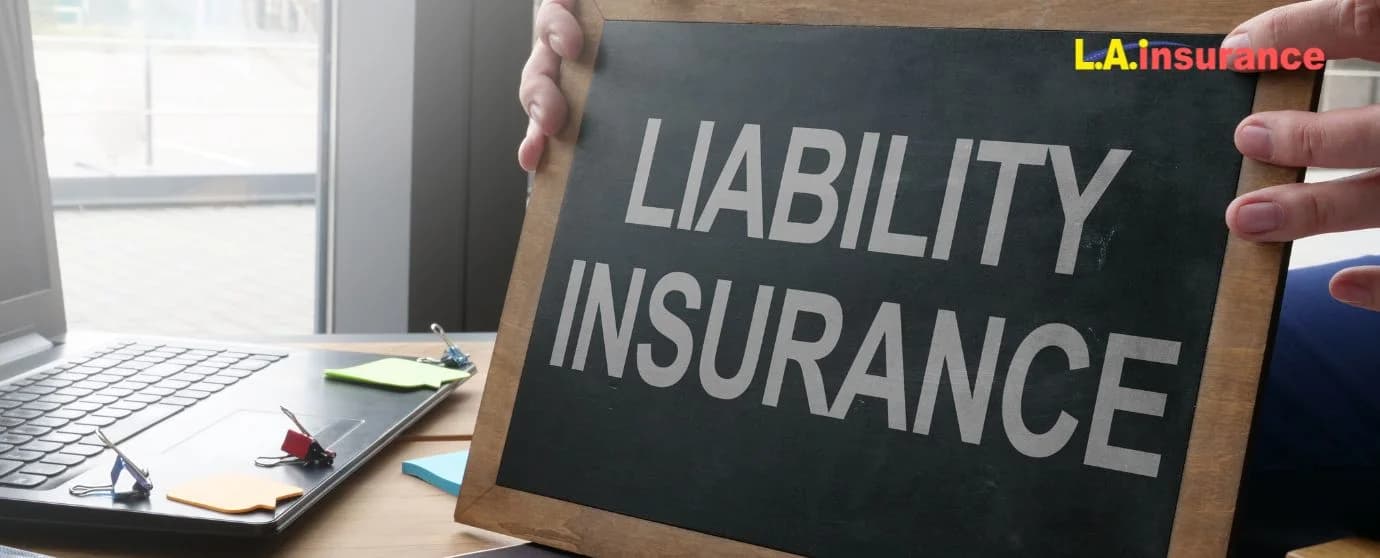
Publish Date: 07-09-2024
Auto Insurance
Last Updated: 29-06-2025
How to Sell a Car in Michigan?
Selling a car in Michigan isn’t really challenging. If you get a grasp of some legal and logistical steps, it can make all the difference between a smooth transaction and a headache down the road. From important paperwork to transferring the title of your car, you simply need to be attentive to each step. Whether you're trading it through a car dealership or selling to a private buyer, knowing how to sell a car in Michigan safely will keep you out of trouble in the future. So, take your time to collect the maintenance records, complete a bill of sale, and follow the proper title transfer process. Doing so will protect you legally as well as make your buyer feel more confident about going for the deal. So, let’s break down all the steps of selling a car in Michigan.
Various Car Selling Methods Available in Michigan
Before we discuss the steps of how to sell a car in Michigan by owner, you need to decide which car-selling process is more suitable for you. Here is a list of car-selling methods in Michigan:
- Car Dealership Sales: You can sell your car in Michigan through licensed car dealerships that handle all legal paperwork, financing, and warranties.
- Private Sales: Direct sales between individuals, mostly through online platforms like Craigslist, or other online platforms.
- Trade-In: You can sell a car to a dealership as part of a new vehicle purchase.
- Online Car Marketplaces: Using platforms like Carvana, Vroom Cars.com, Carvana, Edmunds, CarMax, and TrueCar. On these sites, sellers list their cars for direct online buyers.
- Car Auctions: Selling cars through public or private auctions, either in-person or online.
- Consignment: Partnering with your dealership to sell a car in Michigan, where the dealer usually handles the sale for a fee.
- Cash for Car Services: Instant cash offer from services that cars outright, such as We Buy Any Car or local Junkyards. In this way, you can easily sell your junk car in Michigan and get cash instantly.
Read more: How to Find Cheap Car Insurance in Michigan?
How to Sell a Car in Michigan in 2025: Step-by-Step Process
Maybe you’re thinking of upgrading your vehicle or you just need some extra cash, there might be many reasons for selling your car in Michigan. However, to keep yourself out of the complications, you need to follow some clear process that will make the car sale smoother and more successful. That’s why we’re here to help you out with our step-by-step guide for trading your car in MI. Please note that these are the generalized steps and can overall help any car seller in Michigan.
Simple Steps to Sell Your Car in Michigan:
- Gather Necessary Documents
- Determine the Selling Method
- Prepare the Car for Sale
- Set a Fair Price
- Handle the Transaction
- Notify the Secretary of State and Insurance Company
Step 1: Gather Necessary Documents
First, look for the title of the vehicle. When it comes to collecting all the documents related to your car, the first vital step is to locate your vehicle’s title. This document proves that you own the car and are authorized to sell it. Without the title, you won’t be able to transfer ownership to the buyer. So, make sure the title is in your name and free of any liens.
A bill of sale is a document that records the details of the transaction. When selling a car in Michigan state, a bill of sale isn’t legally required for every vehicle. However, it would be better if you keep one record for all transactions and ownership transfers. Because it can serve as a legal record of the sale.
The following information should be in the bill of sale:
- Car’s Make, Model, Year
- Vehicle Identification Number (VIN)
- Date of Sale and Sale Price
- Legal Full Name and Signature of Buyer and Seller
Moreover, in Michigan, you’re required to provide an Odometer Disclosure Statement. This document confirms the car’s mileage at the time of sale and helps prevent fraud. Ensure that the mileage recorded is accurate and matches the car’s existing odometer reading.
Apart from this, you might also need additional documents to sell a car in Michigan state.
So, here’s a sum up of what paperwork you need to sell your car privately in Michigan (Via the Michigan Department of State)
- Original Title of the Vehicle
- Bill of Sale (not legally necessary but good to have)
- Odometer Reading or Disclosure Statement (Form BDVR-108), if applicable
Step 2: Determine the Selling Method
The popular options for selling your car in Michigan are:
- Sell to a Dealership
- Private Sell
- Online Platforms
Selling your car to a Dealership is the quickest way to do it. Car dealership usually buys your car directly which can save you the hassle of finding a buyer yourself. However, you might get less money compared to private sales.
A private sale is another option to sell your car in MI. Here you can list your car on various platforms such as online classifieds or community boards. In most cases, sellers get a higher price in this method. However, it needs more effort and time to manage inquiries, show the car, and handle negotiations.
On the other hand, selling your car in Michigan through online marketplaces like Craigslist, Autotrader, or Facebook Marketplace can help your ad reach a broader audience. On these sites, you can set your price and negotiate directly with potential buyers. No matter what, if you do it on your own, you must prepare to manage communication as well as meet potential buyers for viewings and crack the deals.
Step 3: Prepare the Car for Sale
When you want to sell your car privately, you need to inspect and prepare it well. Typically, a potential buyer hires a qualified and licensed auto mechanic to inspect your vehicle. So, we recommend car sellers in MI to keep the reports of their records. This way anyone can keep the transparency with the buyer in the pre-purchase car inspection stage.
Anyway, when you’re listing a car online for sale, thoroughly clean both the interior and exterior. As you must have realized, a well-presented car attracts more buyers and can get you a higher price. Even before the pre-purchase inspection, which is conducted from the buyer's end, you should consider getting a professional inspection. Thus, you can identify any issues that might need addressing before the sale.
Also, as we stated earlier, you should get the vehicle history report. Providing this report to potential buyers can build trust. Usually, this report details past accidents, repairs, and ownership history. If you can’t manage this vehicle report, you can just talk to a car insurance agency in Michigan and ask them about your claim history.
Step 4: Set a Fair Price
To set a price, you need to research the market of your car. To do so, you can check online tools and resources. Websites like Kelly Blue Book or Edmunds can provide estimates based on your car’s make, model, year, and condition. This will help you set a competitive price.
Besides, while estimating your car’s value, consider condition and mileage as well. Lower mileage and good conditions mean you can set a higher price for your car. However, you should be honest while determining the value of your car and also about your car's condition during the sale.
Step 5: Transfer of Ownership
When the deal is confirmed, handle your transaction carefully. Accept secure payment methods. Options include cash, certified checks, or bank transfers. Be cautious of using online payment methods that may be subject to fraud.
Once the payment is received, sign the title over to the buyer and complete the transfer of registration. This step officially transfers car ownership and should be done as soon as possible to avoid future liabilities.
Here is how you can transfer title and vehicle registration in Michigan:
In-Person Title Transfer SOS (Secretary of State) Office:
- Both buyer and seller should visit the SOS office together.
- You need the original title (no photocopies), signed by both parties.
- Provide an accurate odometer disclosure statement, vehicle sale price, and both the seller’s and buyer’s signature.
- A statement from the loan provider is also necessary if the vehicle had a loan or currently has any active loan.
- Bring your Michigan Driver's license and Proof of Michigan’s No-fault insurance as well.
- Fees: $15 for title transfer, $10-$15 for plate transfer, 6% sales tax (not for family transaction), and optional recreation passport fees.
Online Title Transfers:
- Both buyer and seller must have valid Michigan IDs and an online account.
- The title must be a current Michigan paper title
- The vehicle must meet eligibility requirements (no financing allowed)
- Fees and insurance requirements are the same as in-person transfers
- Online transfer may take up to 3 days to process.
In Michigan, the process of transferring the title of a vehicle from a deceased owner typically does not require probate if the survivor is the spouse or closest next of kin. To complete the transfer, the survivor needs the original title, a death certificate, and proper identification. In the case of a transfer to an immediate family member or spouse, the license plate can remain on the vehicle.
Step 6: Notify the Secretary of State and Insurance Company
Report the sale to the Michigan Secretary of State as we’ve discussed. In this step, you’ll submit the appropriate forms and notify them the car has been sold. This helps in removing your liability for the vehicle.
Also, don’t forget to cancel your car insurance policy once the sale is complete. Notify your car insurance provider in Michigan. If you have been paying for full coverage auto insurance, canceling or transferring it might be necessary. It’s always a good idea to directly check with your car insurer.
Learn more: Why Is Michigan Auto Insurance So Expensive?
How to Sell My Car in Michigan: Key Takeaways
- Make sure you have the vehicle title, odometer statement, and bill of sale
- Choose between dealership, private sale, or online platforms
- Clean, inspect, and get a vehicle history report
- Research market value, consider the car’s condition, and set a fair price
- Receive your payment through a secure and reliable payment method
- After receiving your payment, go to the SOS office branch and transfer title and vehicle registration.
- Notify both SOS and your insurance company that the car is sold.
Learn More: How Much Is Car Insurance in Michigan?
Frequently Asked Questions About Selling a Car in Michigan
1. How To Fill Out A Title When Selling A Car In Michigan?
To fill out a title when selling a car in Michigan, you need to complete the following steps:
- Sign the title as the seller
- Include the buyer's name and address
- Record the vehicle’s current mileage in the odometer section
- Make sure all fields are filled correctly to avoid errors
Lastly, both parties must visit a Secretary of State office (SOS) to finalize the transfer.
2. Is It Illegal To Sell A Car On Sunday In Michigan?
Yes, it is illegal to sell a car on Sunday in Michigan in certain counties. According to the Michigan Legislature Michigan Public Act, 66 of 1953 prohibits car dealerships in counties with populations over 130,000 from conducting vehicle sales on Sundays. This law is rooted in old “blue laws” which restricted various activities on Sundays for religious reasons.
3. How Many Cars Can You Sell a Year in Michigan?
In Michigan, you can sell up to five vehicles per year without needing a dealer’s license. If you sell more than five, you must obtain a license. Because selling beyond this limit is considered a commercial activity that requires proper registration with the state. This law helps Michigan state to regulate vehicle sales and prevent unlicensed dealerships.
4. What to Do If My Vehicle’s Title Is Lost, Damaged, or Stolen?
If your vehicle’s title has been lost, stolen, or badly damaged, you should apply for a replacement, which is fairly a simple process. First, check with your Secretary of State office. You’ll need to complete an application for Michigan Vehicle Title (Form TR-11L), show identification (like a driver’s license), and pay a $15 fee. The title will arrive by mail within 10 days. However, if you need it urgently some SOS offices offer same-day instant titles.
5. I Am Selling My Car in Michigan; Am I Required to Take the License Plate Off?
Yes. When selling your car in Michigan, you are required to remove the license plate from the vehicle. You can either destroy the license plate or return it to the Secretary of State if not in use. The buyer will need to get a new license plate.
6. When Can You Cancel Auto Insurance After Selling Your Car?
You can cancel your car insurance at any time. However, when it comes to canceling auto insurance after selling your car, you can do it once the ownership transfer is finalized and the vehicle is no longer under your responsibility. Make sure to notify your insurer, cancel the policy, and ensure that you are no longer listed as liable for any incidents involving the vehicle.
7. How to Privately Sell a Car in Michigan?
To sell a car privately in Michigan, you need to transfer the title to the buyer. Make sure to cancel any liens. It’s recommended to meet at the Secretary of State office to complete the title transfer. The buyer pays sales tax when applying for the new title.
Tag :
cheap car insurance
car maintenance
auto insurance michigan








